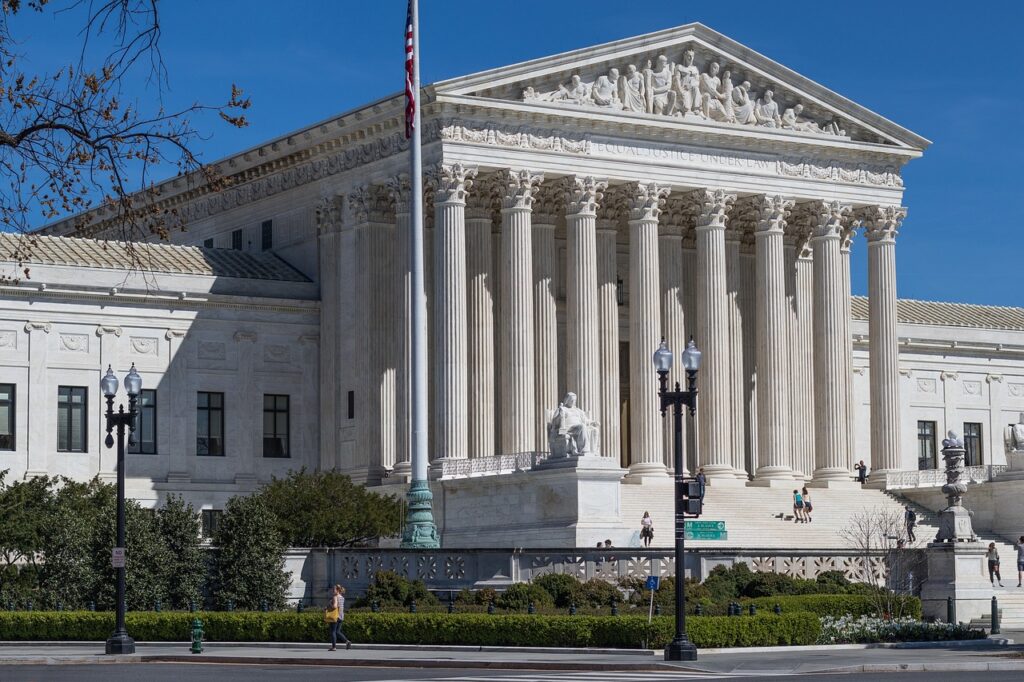
(Rightallegiance.com) – On Friday, the Supreme Court rejected special counsel Jack Smith’s plea to expedite arguments on whether Donald Trump is immune from federal prosecution for alleged crimes committed during his presidency. This decision is expected to cause a delay in Trump’s trial, and the court did not provide an explanation for its ruling.
Smith’s unusual request, aimed at bypassing a federal appeals court, faced a setback. The Supreme Court’s move deals a significant blow to Smith, who sought a rapid resolution of a crucial issue in his election subversion case against Trump. Although both parties can still appeal a future decision by the DC Circuit Court of Appeals, the court’s action is seen as a victory for Trump. His strategy of employing delays in the criminal case, particularly regarding the immunity question, appears to be gaining traction.
The DC Circuit is already expeditiously reviewing the immunity issue, scheduling oral arguments for January 9, while the election subversion trial is slated for March. Steve Vladeck, a Supreme Court analyst, and law professor at the University of Texas, emphasized the uncertainty of the trial timeline. He noted that if the court of appeals rejects Trump’s immunity claim, it remains to be seen whether the trial will proceed or be put on hold pending Supreme Court review.
In court papers, Trump’s attorneys argued against expediting the case, cautioning against hasty decisions in the midst of a political dispute. Trump’s legal team had previously requested the appeals court to review the immunity ruling by District Judge Tanya Chutkan, who had rejected their argument that the indictment should be dismissed due to Trump’s official capacity as president.
Despite Chutkan’s decision, Smith’s team sought Supreme Court intervention, citing the urgency of resolving the immunity issue and proceeding with the trial. Drawing parallels to a Watergate-era case, Smith argued that the high stakes warranted swift resolution, emphasizing the pivotal role the court’s decision plays in determining whether Trump stands trial.
In addition to immunity, the court was also asked to rule on whether Trump is protected by double jeopardy. Defense lawyers argued that Trump’s Senate acquittal in his impeachment trial prevents criminal charges for the same actions. Smith contested these claims, asserting that the grand jury’s charges were based on facts and applicable law, urging the court to promptly address the immunity claim.
Following the Supreme Court’s order, Trump leveraged the situation for fundraising, portraying himself as a victim of political persecution. His message highlighted the denial of “presidential immunity” and expressed his commitment to fighting legal battles.